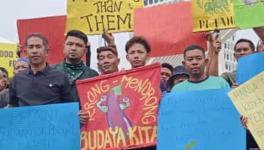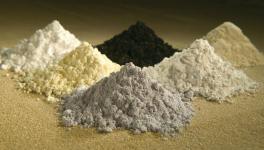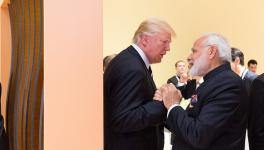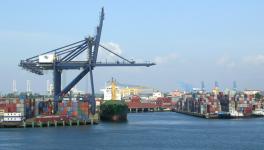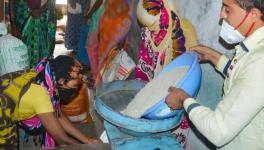International Trade Puts Indian Farmers and Food Security at Risk
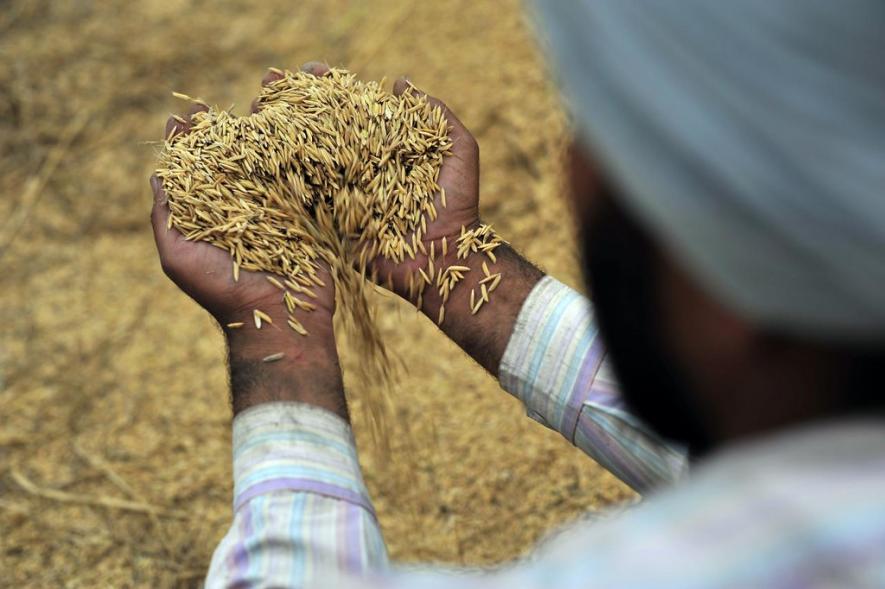
Representational Image. | Image Courtesy: flickr
Movements and struggles to protect small and medium farmers from the onslaught of big business are going on in many countries. These struggles have uncovered a hidden enemy of farmers everywhere—it is the rules that underpin international trade agreements. Their clauses favour big business interests at the cost of farmers.
The problems exist on two planes—in the World Trade Organization (WTO) rules and the Free Trade Agreements (FTAs).
The WTO has interlinked agricultural issues with international trade. This was not the case under earlier trade arrangements. What is more, this has been done mainly based on the self-interest of the United States and the European Union. However, the average farm size in these countries, for farming, dairying, and related activities, is far higher than in India. These sectors are also increasingly dominated by very powerful agro-business interests that are gobbling up more and more land.
Thus in the process of moving to the WTO trade regime, the vulnerable small farmers of developing and poorer countries (the largest number are in India), were pushed into highly unequal and unfair competitions with the farming sectors of the rich countries.
Three factors further worsened this injustice: One, massive government subsidies for the farm sector in the rich countries which the poor nations cannot match. Two, big agro-business companies, most prominently in the US, have shoved aside their small farmers to amass enough resources and lobby in the interest of big farming. Their damaging impact on small farmers’ livelihoods and food security and the environment are ignored by the powerful international lobbies.
The WHO rules are supposed to diminish so-called price-distorting subsidies, but the US and European Union, because of their dominating role, have their subsidies classified as compliant with the rules. These nations raise objections about the subsidies given by developing countries, which protect livelihoods and food security.
Given the heavily-mechanised and energy-intensive nature of agriculture in rich countries and their emphasis on monocultures, their propensity to dump agricultural goods is much higher, which can ruin small farmers in developing countries. Due to massive subsidies, pricing their products at even below cost is possible for them.
Hence, on the one hand, there is a much higher risk of unfair competition of imports, and on the other hand, the farmers of poor countries risk the WHO invoking the rule-book to slash their subsidies. Through this process, poor consumers are at risk of losing their food subsidies.
The WHO also integrates so-called intellectual property rights with trade. Thus, patents are being applied to life forms including plants and crops. This limits farmers’ access to seeds and their right to seeds. Expensive regular purchases of patented seeds sold by big companies are another imposition on them.
The Human Development Report (HDR) prepared a special issue on trade which brought out the inequality and injustice of the existing international trade system. This report says, “It would be hard to design a more regressive—or less efficient—system of financial transfers than currently provided through agricultural subsidies...Industrial countries are locked into a system that wastes money at home and destroys livelihoods.”
This has contributed significantly to highly unfair trade, the HDR says. “The problem with the current framework of rules in agriculture is that it institutionalises unfair trade practices behind a veneer of WTO legality,” it says. It raises the question of when a subsidy is not a subsidy and replies that it is not so “when developed countries say so”.
While developing countries have not recovered from the highly destabilising and harmful impact of the new rules imposed by the WTO regime, a series of FTAs started being proposed and signed. This further hiked the damaging impacts of international trade, as the rules of these agreements, for example in terms of imports and patents, are often even more damaging. The exemptions given in the agreements on say, the WTO platform, are often missing in the agreements signed by smaller international platforms or in bilateral platforms.
The NAFTA agreement involving the US, Canada, and Mexico in the early 1990s, for example, displaced nearly a million farmers in Mexico due to cheap corn imports. What is more, food security also suffered due to manipulations by giant food-processing companies. The price of the most staple food, tortillas made from corn, increased substantially instead of reducing, as was said at the signing of the agreement.
In free trade agreements, particularly those involving a very rich and dominant country and a developing country, there is even more room to influence the policy of the weaker player. This can make the entire food and the farming sector more dependent on the diktats of giant multinational companies. Such fears have been expressed in the context of the free trade agreement which is the US and India are negotiating.
The ongoing farmers’ movement in India has drawn attention to how international trade and WTO-related problems are behind several policies of the government.
A recent policy paper by the c, to limit or reduce the food subsidy system amidst reports of increasing hunger and malnutrition and demands to expand the public distribution system, is a case in point. Farmer, consumer and food-security organisations should cooperate across borders to protect the interests of the weak.
The writer is a journalist and author. His recent books include Protecting Earth for Children and Man Over Machine. The views are personal.
Get the latest reports & analysis with people's perspective on Protests, movements & deep analytical videos, discussions of the current affairs in your Telegram app. Subscribe to NewsClick's Telegram channel & get Real-Time updates on stories, as they get published on our website.









